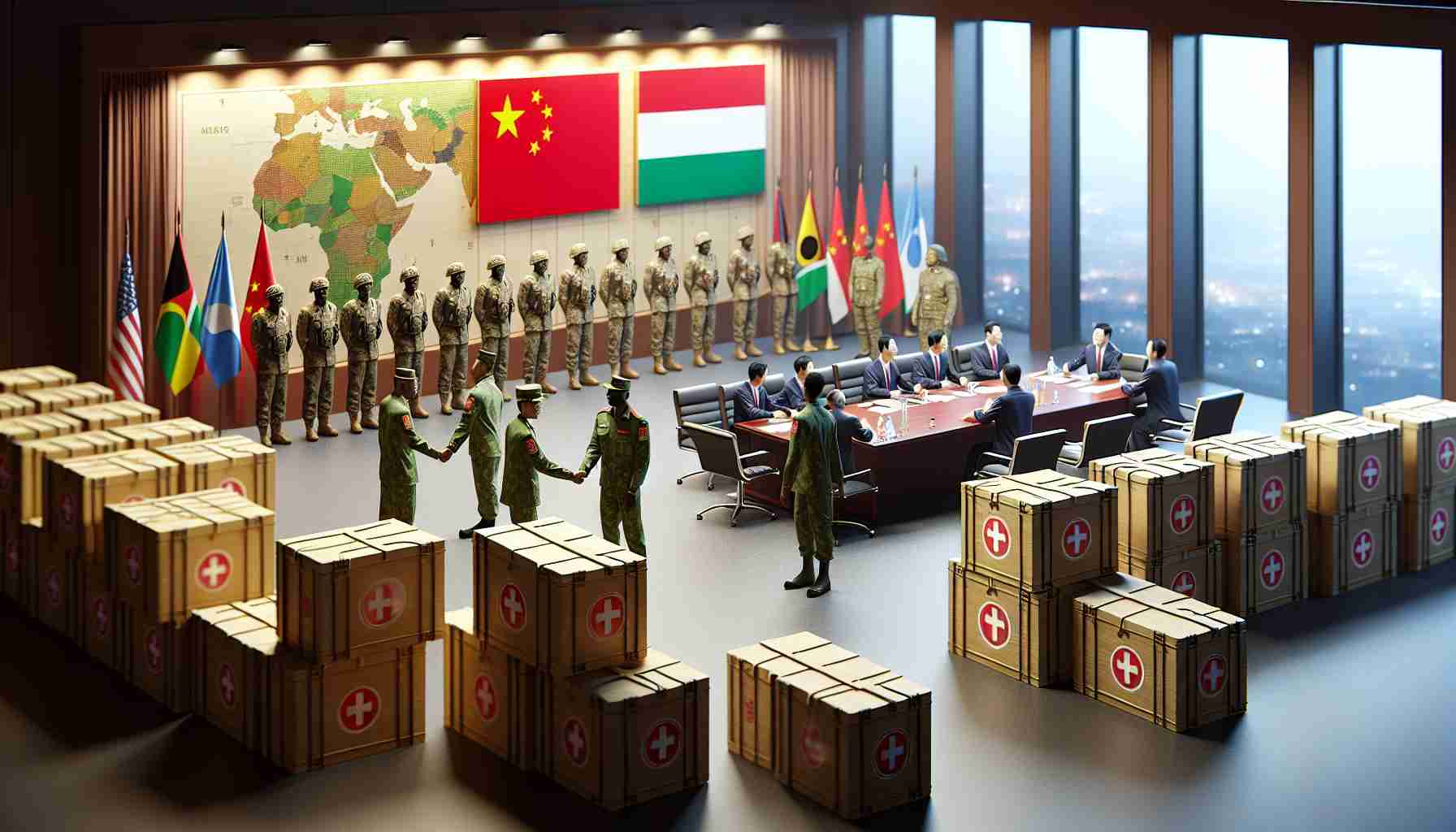Strengthening Ties with Africa
During his recent stop in Nigeria, China’s Foreign Minister, Wang Yi, announced significant military assistance aimed at bolstering security across Africa. This visit capped off a week-long trip through the continent, during which he emphasized that China is committed to enhancing the peacekeeping capabilities of African nations.
Wang revealed plans to allocate 1 billion yuan (approximately 132.5 million euros) for military support and training for 6,000 military personnel and 1,000 police from various African countries. He reiterated China’s role as a major contributor to United Nations peacekeeping efforts, pledging ongoing support for these initiatives.
In a strong declaration of partnership, he stressed that Africa should tackle its challenges using solutions rooted in African perspectives. Wang affirmed that in the United Nations Security Council, China consistently votes in favor of African interests.
Highlighting Nigeria’s pivotal role on the continent, he noted its leadership in the Economic Community of West African States (ECOWAS), which is vital for regional stability. Nigeria, home to over 213 million people, stands as Africa’s most populous nation and a key player in its economy, despite substantial poverty challenges faced by its citizens, as reported by the World Bank.
Wang’s visit, part of a long-standing tradition for China’s Foreign Ministers, reflects deepening ties and renewed commitments to Africa’s development, which includes vast financial pledges made by President Xi Jinping in recent forums.
China’s Strategic Military Assistance: Strengthening Ties with Africa
Introduction
China is taking significant steps to deepen its ties with African nations through military assistance and support for peacekeeping initiatives. With a focus on regional stability, recent announcements by Chinese officials exhibit a commitment to partner with Africa in addressing local security challenges.
Key Features of the Military Assistance
– Financial Commitment: China plans to invest 1 billion yuan (approximately 132.5 million euros) for military support, which includes training for 6,000 military personnel and 1,000 police officers from various African countries.
– Focus on Peacekeeping: This initiative aligns with China’s role as a key contributor to United Nations peacekeeping missions, reinforcing its commitment to global safety and security.
– Localized Solutions: Chinese officials emphasize the importance of African nations developing their security solutions, which are culturally and contextually relevant.
Pros and Cons of China’s Military Aid to Africa
Pros:
1. Enhanced Security Capabilities: African nations may strengthen their defense forces, enabling better management of internal and external threats.
2. Increased Investment: An improved security environment can lead to greater foreign investment in African economies.
3. Collaboration on Peacekeeping: Strengthening African forces can enhance the efficacy of UN missions in the region.
Cons:
1. Dependency on Chinese Aid: There is a concern that African nations could become reliant on China for military resources.
2. Potential for Increased Tensions: The influx of military aid may exacerbate regional tensions or provoke suspicions from other global powers.
3. Sovereignty Issues: The presence of foreign military influence may raise questions about national sovereignty and decision-making autonomy.
Use Cases of Military Assistance
– Counterterrorism Operations: Training and resources can enhance the capabilities of African armies in combating terrorism, especially in regions plagued by extremist groups.
– Crisis Response: Well-trained police and military personnel can respond more efficiently to humanitarian crises or civil unrest.
– Regional Stability Missions: Enhanced military training supports regional bodies like ECOWAS in their peacekeeping and conflict resolution efforts.
Pricing and Financial Implications
The promised 1 billion yuan represents a significant financial commitment from China towards the military enhancement of African nations. This strategic investment can aid countries in not only bolstering their defense mechanisms but also fostering economic growth through increased stability.
Trends in China-Africa Relations
China’s military assistance is part of a broader trend of increased diplomatic and economic engagement with African nations. Over the years, China has become a primary investor in infrastructure and development projects on the continent, reflecting a multidimensional approach to partnership.
Innovations in Security Assistance
China is leveraging technology to modernize Africa’s security framework. The use of advanced surveillance systems and cybersecurity measures is becoming increasingly vital. This innovation could help African nations better monitor their borders and improve their response to emerging threats.
Future Predictions
The growing military ties could lead to enhanced political influence for China in Africa, shaping the geopolitical landscape in the coming years. As African nations enhance their military capabilities, the balance of power and regional stability may shift, impacting international relations on the continent.
Conclusion
China’s commitment to strengthening military ties with Africa signifies a mutual interest in fostering security and stability. While there are both advantages and potential drawbacks to this partnership, the overarching goal remains centered on building a robust framework for peacekeeping and development, addressing Africa’s challenges with solutions rooted in regional contexts.
For more information on international relations, visit the United Nations.
